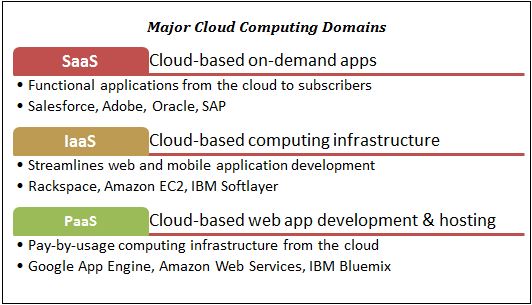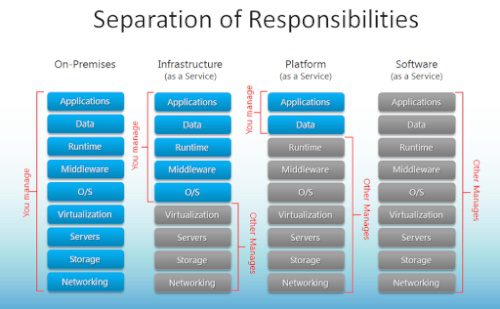Platform as a service (PaaS) is a cloud-based web development platform that shifts computing infrastructure and development tools from the customer data center to the PaaS cloud provider. Some PaaS environments run on a business’s private cloud, but most PaaS offerings run from a cloud computing vendor who provides the infrastructure and the full development toolset.
PaaS if one of three primary cloud computing domains: Platform as a Service (PaaS), Software as a Service (SaaS), and Infrastructure as a Service (IaaS).
Protecting your company’s data is critical. Cloud storage with automated backup is scalable, flexible and provides peace of mind. Cobalt Iron’s enterprise-grade backup and recovery solution is known for its hands-free automation and reliability, at a lower cost. Cloud backup that just works.

Unlike IaaS, PaaS does not replace a full computing infrastructure. It provides prebuilt computing infrastructure and development tools that support a rapid development environment. This includes operating systems, database management systems, server-side scripting environments, server software, support, storage, network access, design and development tools, and application hosting. The PaaS vendor delivers PaaS services from their cloud data center, usually on a pay-per-use subscription basis. End users choose the features that they need.
The PaaS stack operates on two primary levels: the computing infrastructure and the development environment. Level 1 is the infrastructure: the PaaS vendor delivers the computing environment, including operating systems, network, servers, and storage. The cloud vendor also provides data protection, scalability, load balancing, failover, security, and upgrades.
Level 2 is the development environment: the provider builds and manages the development and hosting platform including libraries, services, frameworks, testing, and programming languages.

Source: Technet The Platform as a Service model manages most of the development platform for a client.
PaaS is very useful in the right circumstances since it allows developers to decouple the development lifecycle from IT requirements. IT also benefits because they do not have to provision dynamic computing environments for development teams or massive web farms for pp hosting. Meanwhile the cloud delivers massive scalability, flexible usage models, and enterprise-level security.
PaaS also benefits teams who are developing mobile or cloud applications, employ remote team members, are trying to hit deadlines without hiring extra staff.
It is not as useful when developers want platform-independent code, or when they risk PaaS vendor lock-in, or when performance requires a highly-customized computing environment. And although your service provider should provide a high level of security, not every business is comfortable and developing web applications in multitenant environments.
For beginning-to-end guidance on choosing cloud types and vendors, read our comprehensive guide to cloud computing.
When you are looking for a PaaS provider, first ask them all the questions that you need to ask any cloud computing provider around performance, scalability, service level agreements, security, and reliability. Ask PaaS vendors additional questions around development environment customization, automation, flexibility, and support.
PaaS offerings are not monolithic. Some are simplified application environments that concentrate on massive hosting and distribution, while others provide advanced development environments.
PaaS offerings also differ in their hosting requirements. Some platforms serve a specific SaaS environment such as Salesforce’s Force.com. Other offerings are inextricably linked to their cloud operating environment such as AWS, while still others are open offerings deployed on public, hybrid, and private clouds. Note that the public cloud vendors – AWS, Google, and Azure –support cloud-based development but may focus primarily on massive application deployment and hosting.

Datamation is the leading industry resource for B2B data professionals and technology buyers. Datamation's focus is on providing insight into the latest trends and innovation in AI, data security, big data, and more, along with in-depth product recommendations and comparisons. More than 1.7M users gain insight and guidance from Datamation every year.
Advertise with TechnologyAdvice on Datamation and our other data and technology-focused platforms.
Advertise with Us
Property of TechnologyAdvice.
© 2025 TechnologyAdvice. All Rights Reserved
Advertiser Disclosure: Some of the products that appear on this
site are from companies from which TechnologyAdvice receives
compensation. This compensation may impact how and where products
appear on this site including, for example, the order in which
they appear. TechnologyAdvice does not include all companies
or all types of products available in the marketplace.